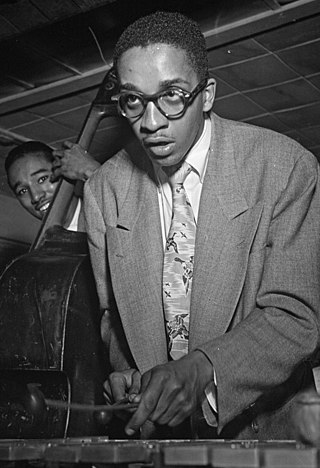
Milton Jackson, nicknamed "Bags", was an American jazz vibraphonist. He is especially remembered for his cool swinging solos as a member of the Modern Jazz Quartet and his penchant for collaborating with hard bop and post-bop players.
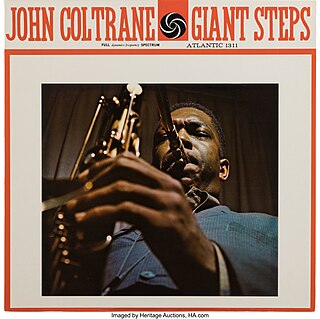
Giant Steps is a studio album by the jazz musician John Coltrane. It was released in February 1960 through Atlantic Records. This was Coltrane's first album as leader for the label, with which he had signed a new contract the previous year. The record is regarded as one of the most influential jazz albums of all time. Many of its tracks have become practice templates for jazz saxophonists. In 2004, it was one of fifty recordings chosen that year by the Library of Congress to be added to the National Recording Registry. It attained gold record status in 2018, having sold 500,000 copies.

Milestones is a studio album by Miles Davis. It was recorded with his "first great quintet" and released in September of 1958 by Columbia Records.

Coltrane Plays the Blues is an album of music by the jazz musician John Coltrane. It was released in July 1962 by Atlantic Records. It was recorded at Atlantic Studios during the sessions for My Favorite Things, assembled after Coltrane had stopped recording for the label and was under contract to Impulse Records. Like Prestige Records before them, as Coltrane's fame grew during the 1960s, Atlantic used unissued recordings and released them without either Coltrane's input or approval.

Hello, Love is a 1959 studio album by the American jazz singer Ella Fitzgerald, recorded over two sessions in 1957 and 1959.

Coltrane's Sound is an album credited to the jazz musician John Coltrane, recorded in 1960 and released in 1964 on Atlantic Records, catalogue SD 1419. It was recorded at Atlantic Studios during the sessions for My Favorite Things, assembled after Coltrane had stopped recording for the label and was under contract to Impulse! Records. Like Prestige and Blue Note Records before them, as Coltrane's fame grew during the 1960s Atlantic used unissued recordings and released them without either Coltrane's input or approval.
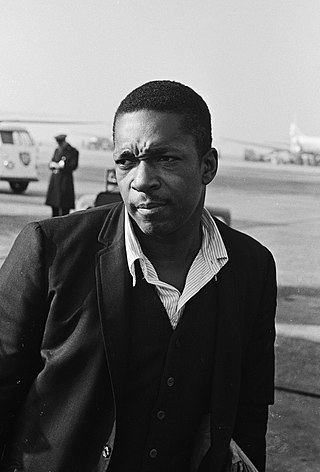
This article presents the discography of the American jazz saxophonist and bandleader John Coltrane (1926–1967).

Bags Meets Wes! is an album by Milt Jackson and Wes Montgomery, released in 1962 by Riverside. It was reissued in 1999 by the Original Jazz Classics label, with additional takes, and again in 2006.
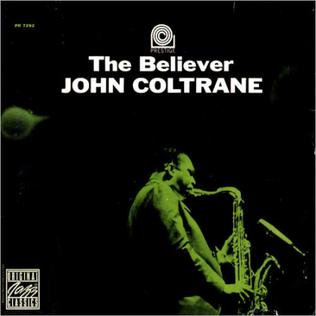
The Believer is a jazz album by John Coltrane released in 1964 on Prestige Records, catalogue 7292. It was recorded by Rudy Van Gelder in Hackensack, New Jersey in 1957 and 1958.

The Heavyweight Champion: The Complete Atlantic Recordings is a 1995 box set by jazz musician John Coltrane. It features all of the recordings Coltrane made for Atlantic Records, spanning January 15, 1959, to May 25, 1961.

Trane's Blues is a compact disc credited to the jazz musician John Coltrane, released in 1999 on Blue Note Records, catalogue 98240. It comprises recordings from sessions for Blue Note and United Artists Records with Coltrane as a sideman for Paul Chambers, Sonny Clark, Johnny Griffin, and Cecil Taylor. These recordings were issued respectively on their Whims of Chambers, Sonny's Crib, A Blowin' Session, and Hard Driving Jazz albums. Two selections are from Coltrane's own 1957 Blue Train, and "One for Four" had been previously unissued. "Trane's Blues" had been issued on the compilation High Step in 1975, previously known as "John Paul Jones" and named after himself, the bass player Chambers, and the drummer Philly Joe Jones. Like Prestige Records before them, as Coltrane's fame grew long after he had stopped recording for the label, Blue Note used varied recordings, often those where Coltrane had been merely a sideman, and reissued them as a new album with Coltrane's name prominently displayed. In this case, the Big Four conglomerate EMI continued that earlier practice.

High Step is a jazz double album credited to bassist Paul Chambers and saxophonist John Coltrane, issued in 1975 on Blue Note Records, catalogue BN-LA451. It is a compilation taken from the 1956 Chambers' Music on the Jazz West label and Whims of Chambers, along with two unissued recordings from a session in Boston, Massachusetts, "Trane's Strain" from that session previously appearing on an anthology. Originally, all of these sessions were led by Chambers, but like Prestige Records before them, as Coltrane's fame grew long after he had stopped recording for the label, Blue Note used varied recordings where Coltrane had been merely a sideman, and reissued them with Coltrane's name more prominently displayed.
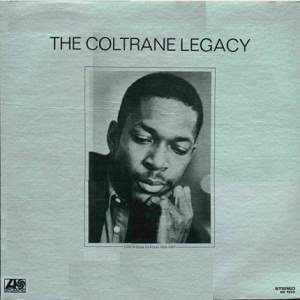
The Coltrane Legacy is a compilation album credited to jazz musician John Coltrane, released in 1970 on Atlantic Records, catalogue SD 1553. Issued posthumously, it consists of outtakes from recording sessions which yielded the albums Olé Coltrane, Coltrane Plays the Blues, Coltrane's Sound, and Bags & Trane. All selections were previously unreleased.

Soul Meeting is a 1961 Atlantic Records album of recordings made by Ray Charles and Milt Jackson in 1957. The album was later re-issued together with the earlier Soul Brothers (1958), on a 2 CD compilation together with other 'bonus' tracks from the same Charles and Jackson recording sessions.
"Stairway to the Stars" is a popular song composed by Matty Malneck and Frank Signorelli, with lyrics by Mitchell Parish. It was based on a theme from Malneck and Signorelli's 1934 instrumental piece, "Park Avenue Fantasy."

I Just Dropped by to Say Hello is a studio album by jazz singer Johnny Hartman, released by Impulse! Records in 1964. It was the second of three albums Hartman recorded for Impulse!, and followed John Coltrane and Johnny Hartman, recorded a few months earlier.

Chambers' Music is the debut album by jazz bassist Paul Chambers. It was released in September 1956 on the Jazz West label. It features Chambers with his Miles Davis bandmates, tenor saxophonist John Coltrane and drummer Philly Joe Jones, along with pianist Kenny Drew, and baritone saxophonist Pepper Adams and trombonist Curtis Fuller on three tracks.

Lionel Hampton Presents Buddy Rich is a jazz album recorded by Buddy Rich and released by the Who's Who in Jazz record label in 1977. The album has been re-issued by different labels under different names including, Buddy's Cherokee, The Lionel Hampton Sessions and Sounds of Jazz Vol. 10.
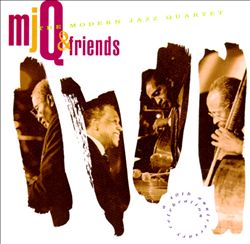
MJQ & Friends: A 40th Anniversary Celebration is an album by American jazz group the Modern Jazz Quartet featuring performances recorded in New York City, Los Angeles and at the Montreux Jazz Festival with guest artists including Bobby McFerrin, Take 6, Phil Woods, Wynton Marsalis, Illinois Jacquet, Harry "Sweets" Edison, Branford Marsalis, Jimmy Heath, Freddie Hubbard and Nino Tempo and released on the Atlantic label.
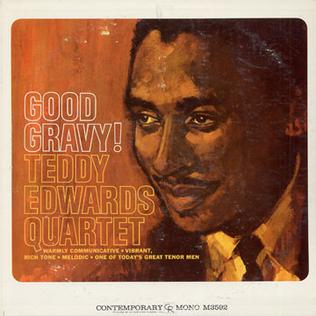
Good Gravy! is an album by saxophonist Teddy Edwards which was recorded in 1961 and released on the Contemporary label.



















